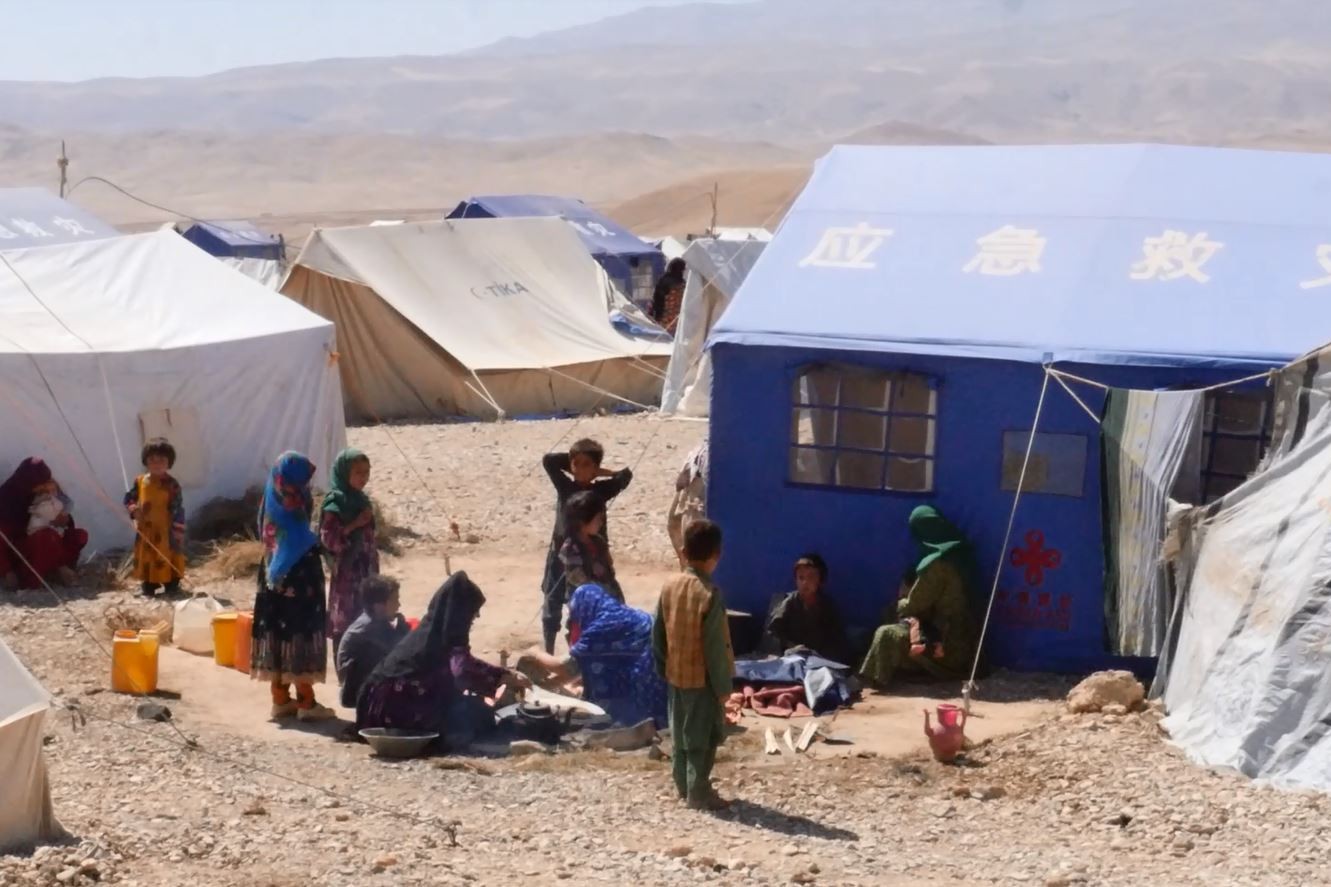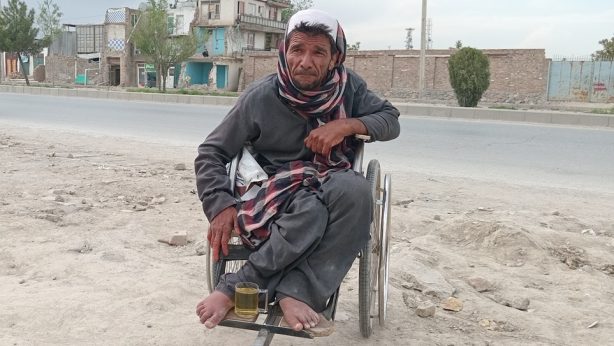Polio Vaccination: A New Hope for Displaced Families’ Children in Ghor

Ghor, Afghanistan – In a barren desert surrounded by towering and winding mountains, hundreds of tents stand as temporary shelters for families who have lost everything to the devastating floods.
This is an internally displaced persons (IDP) camp located east of Ferozkoh, the capital of Ghor province. Among its residents is 37-year-old Ali Ahmad, who lives with his wife and four children, including four-year-old Jawad and one-and-a-half-year-old Zainab.
Displacement After Disaster
Ali Ahmad and his family were forced to leave their home and land in Murghab district after severe floods earlier this year.
Now, they live in the camp with around 500 other families, where basic necessities are scarce, and diseases like polio pose a serious threat to children’s lives.
However, thanks to the efforts of health teams and vaccinators, children under five in this camp regularly receive polio vaccinations.
Ali Ahmad appreciates these services and believes that the vaccinations have protected his children from the poliovirus, giving them hope for a better future.
“The vaccination teams regularly visit the camp and vaccinate the children. This effort has kept my children safe from the poliovirus,” he says.
Dr. Basir Ahmad Paikar, a pediatric specialist in Ghor, emphasizes the need for continued vaccination campaigns, given the harsh living conditions in the camp.
“Displaced children are more vulnerable than others. If they are not regularly vaccinated, they run the risk of contracting the poliovirus. Furthermore, movement to and from the camp, from various districts, increases the risk of polio transmission and spread,” he states.
He adds that regular polio vaccination campaigns strengthen children’s immune systems and prevent the transmission and spread of the virus.
Abdul Sattar Mowafaq, the Director of Public Health in Ghor, says that most children living in this camp have consistently received polio vaccinations.
“Our goal is to prevent the transmission of the polio virus to Ghor, particularly to internally displaced persons’ camps. Healthcare teams are regularly engaged in their duties and vaccinate the children,” he adds.
He further emphasizes: “It is every child’s natural right to be protected from the threat of the poliovirus so they can have bright future. Thus, it is the responsibility of healthcare teams to vaccinate children regularly and prevent the spread of the virus.”
The story of Ali Ahmad and his children is just one of hundreds that show how polio vaccination safeguards children’s lives and futures in the most challenging circumstances.
Cooperation between families, healthcare teams, and vaccinators not only protects children’s health but also gives them hope for a brighter future.
Marzia Frotan, Polio Free Afghanistan


